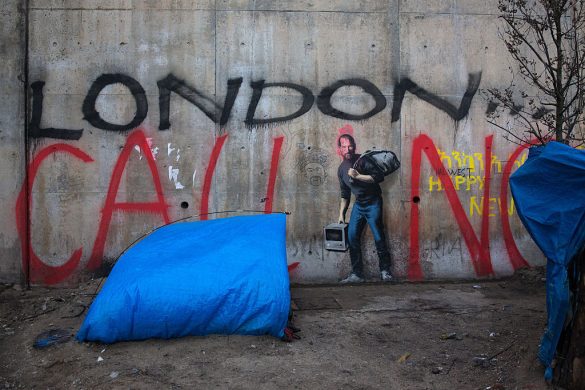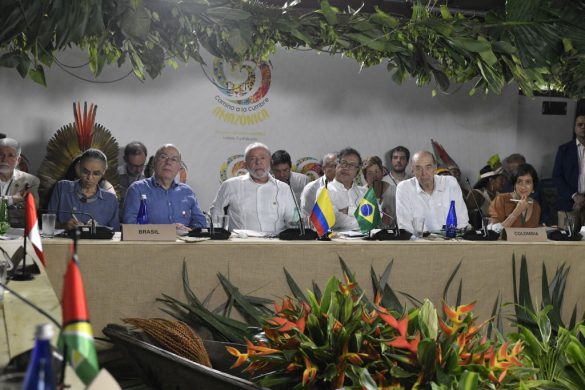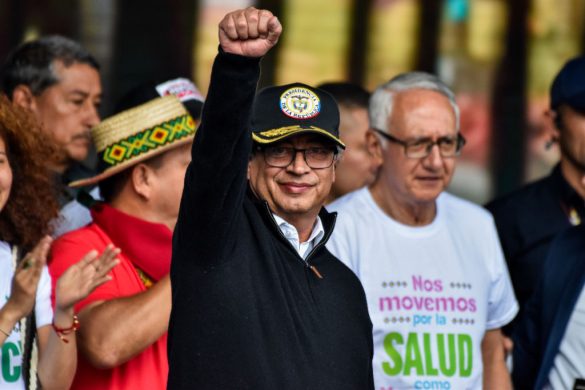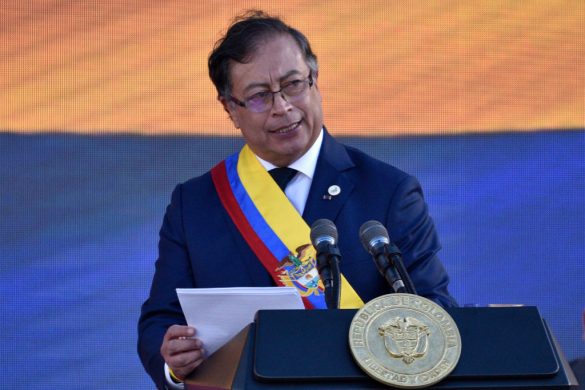BOGOTA/NEW YORK, 9 October, 2017 (OHCHR): UN Assistant Secretary-General for human rights Andrew Gilmour on Monday welcomed progress in the demobilization and disarmament of the FARC, but expressed concern about problems in the implementation of the accords which relate to the continued attacks against human rights defenders and community leaders. At the end of a six-day visit to the country, Gilmour acknowledged the Government’s efforts to adopt policies aimed at preventing such attacks, but said the efforts had yet to produce significant results.
“The armed conflict with the FARC may be over, but the country’s incredibly brave human rights defenders continue to be threatened and killed at an alarming rate,” he said.
“These attacks threaten the long-term stability that Colombia so desperately needs.” Since the beginning of this year, there have been more killings of human rights defenders, social and community leaders, particularly in areas formerly occupied by the FARC, than in previous years.
“After decades of extreme violence, and victims numbering millions, Colombia needs the voices of its human rights defenders to speak up strongly for its democratic values and for those who are particularly vulnerable, including women, Afro-Colombians, LGBTI people and indigenous leaders, especially those in former FARC areas,” Gilmour said.
Bagmændene skal forfølges
Gilmour called on the Government, congress and the justice system to take measures that would leave the authors of these crimes in no doubt that they will be vigorously investigated, prosecuted and punished. “And we are speaking here not just of those who pulled the trigger, but also those who ordered or paid them to do so.”
During his visit to Colombia, Gilmour held several meetings in Bogota with victims of the armed conflict and with civil society actors. He also met the Vice-President, the National Ombudsman, and the Procurator-General, as well as with leaders of the FARC. Gilmour travelled to the mountain villages of San Luis in Neiva in southern Colombia, where he received further information concerning the challenges related to the demobilization and reintegration of the FARC. There, he also met with local authorities and indigenous and community leaders.
The Assistant Secretary-General welcomed the success of the disarmament and demobilization of FARC.
Afgørende at tidligere guerillaer integreres
Gilmour stressed, however, that peace can never be sustainable unless demobilized fighters are properly integrated into society and have the means of earning a living wage as civilians. “Real peace requires that those living in areas formerly held by FARC feel that they are experiencing a ‘peace dividend’ – and this is only likely to happen if state institutions and economic activities move properly to those areas,” he said.
“If not, it is clear that brutal criminal organizations will step up their activities to fill the void left by FARC, which will be a further grave setback for the rights of those living in the areas vacated by the guerillas,” Gilmour added.
Korruptionens betydning
Several interlocutors underlined to Gilmour their concerns about corruption, with one senior state official indicating that it is by far the biggest underlying cause of human rights abuses in Colombia – civil, political and economic. Gilmour was encouraged to learn about the concrete steps taken by the Procurator-General’s Office, with technical support and advice from the UN Human Rights Office, to address this priority issue.
Gilmour expressed concerns at attempts to undermine the judicial system designed in the peace accord, which could hamper efforts to ensure non-repetition of human rights violations. “We need to recognize the critical role of accountability for past human rights violations, including through transitional justice mechanisms, such as the special jurisdiction for peace, to ensure an adequate balance between justice, truth, and the effective reintegration of FARC members, including through political participation,” he said.
Gilmour also stressed the fundamental role of the Ombudsman’s office in the protection of human rights. He called on the authorities to accelerate the strengthening of the early warning system under the Ombudsman’s leadership, as provided in the peace accord.
The Assistant Secretary-General discussed regional human rights issues, including the cross-border impact of the worrying situation in Venezuela. In this context, he acknowledged the generous humanitarian response of the Colombian authorities to the massive flow of people from Venezuela.
Gilmour recognized the Government’s efforts to implement the peace accord, in particular President Juan Manuel Santos’ commitment to give due consideration to human rights issues. He stressed however that what is still needed is urgent action by the Government, working together with civil society, and with the support of the UN, to address chronic impunity for human rights violations, in particular for the “false positives” killings by the armed forces, and for attacks against human rights defenders and community leaders at the hands of criminal organizations.















